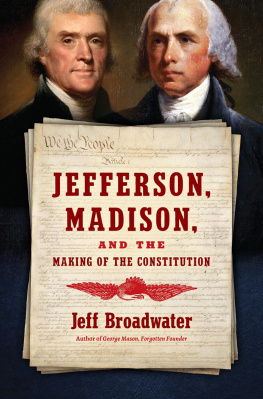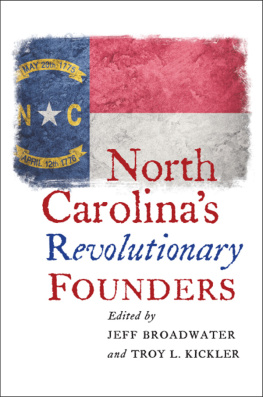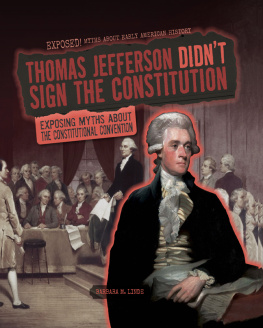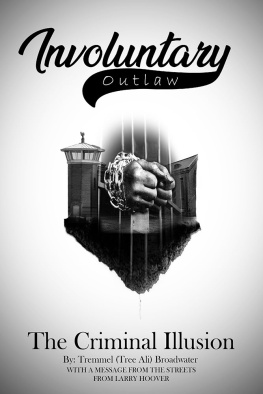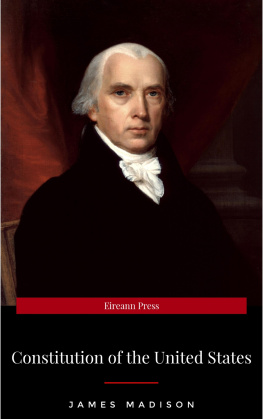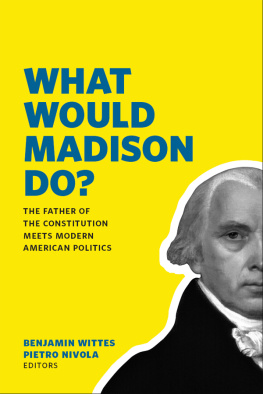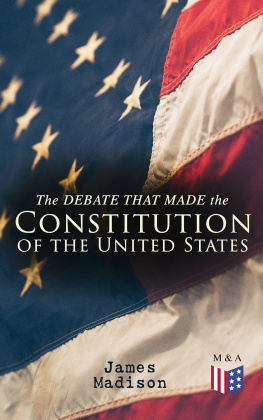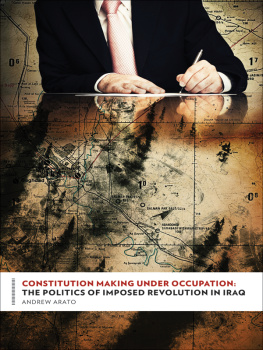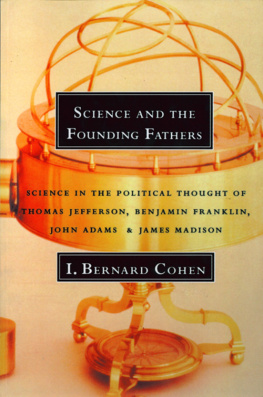Jeff Broadwater - Jefferson, Madison, and the Making of the Constitution
Here you can read online Jeff Broadwater - Jefferson, Madison, and the Making of the Constitution full text of the book (entire story) in english for free. Download pdf and epub, get meaning, cover and reviews about this ebook. year: 2019, publisher: University of North Carolina Press, genre: Politics. Description of the work, (preface) as well as reviews are available. Best literature library LitArk.com created for fans of good reading and offers a wide selection of genres:
Romance novel
Science fiction
Adventure
Detective
Science
History
Home and family
Prose
Art
Politics
Computer
Non-fiction
Religion
Business
Children
Humor
Choose a favorite category and find really read worthwhile books. Enjoy immersion in the world of imagination, feel the emotions of the characters or learn something new for yourself, make an fascinating discovery.
- Book:Jefferson, Madison, and the Making of the Constitution
- Author:
- Publisher:University of North Carolina Press
- Genre:
- Year:2019
- Rating:4 / 5
- Favourites:Add to favourites
- Your mark:
- 80
- 1
- 2
- 3
- 4
- 5
Jefferson, Madison, and the Making of the Constitution: summary, description and annotation
We offer to read an annotation, description, summary or preface (depends on what the author of the book "Jefferson, Madison, and the Making of the Constitution" wrote himself). If you haven't found the necessary information about the book — write in the comments, we will try to find it.
Jefferson, Madison, and the Making of the Constitution — read online for free the complete book (whole text) full work
Below is the text of the book, divided by pages. System saving the place of the last page read, allows you to conveniently read the book "Jefferson, Madison, and the Making of the Constitution" online for free, without having to search again every time where you left off. Put a bookmark, and you can go to the page where you finished reading at any time.
Font size:
Interval:
Bookmark:






Set in Arno, Cutright, Dear Sarah, and Telmoss
by codeMantra, Inc.
Names: Broadwater, Jeff, author.
Title: Jefferson, Madison, and the making of the Constitution / Jeff Broadwater.
Description: Chapel Hill : The University of North Carolina Press, [2019] | Includes bibliographical references and index.
Identifiers: LCCN 2018049278| ISBN 9781469651019 (cloth : alk. paper) | ISBN 9781469651026 (ebook)
Subjects: LCSH: United States. Constitution. | Constitutional historyUnited States. | Jefferson, Thomas, 17431826Political and social views. | Madison, James, 17511836Political and social views.
Classification: LCC KF 4520 .B76 2019 | DDC 342.7302/9dc23 LC record available at https://lccn.loc.gov/2018049278
JACK,
ANDREW,
GEORGIA,
MALLORY,
and
LIZA BENNETT.


Font size:
Interval:
Bookmark:
Similar books «Jefferson, Madison, and the Making of the Constitution»
Look at similar books to Jefferson, Madison, and the Making of the Constitution. We have selected literature similar in name and meaning in the hope of providing readers with more options to find new, interesting, not yet read works.
Discussion, reviews of the book Jefferson, Madison, and the Making of the Constitution and just readers' own opinions. Leave your comments, write what you think about the work, its meaning or the main characters. Specify what exactly you liked and what you didn't like, and why you think so.

